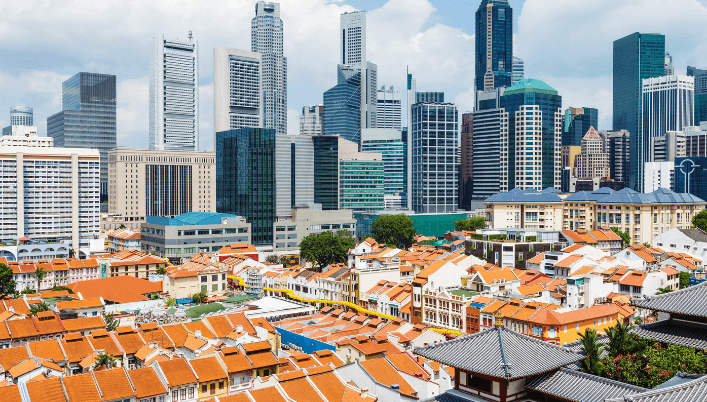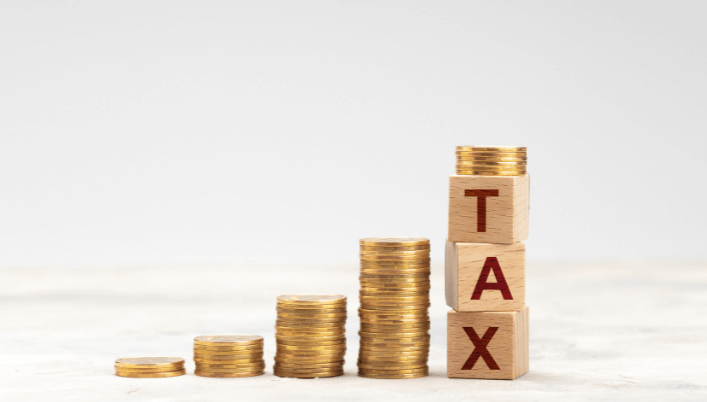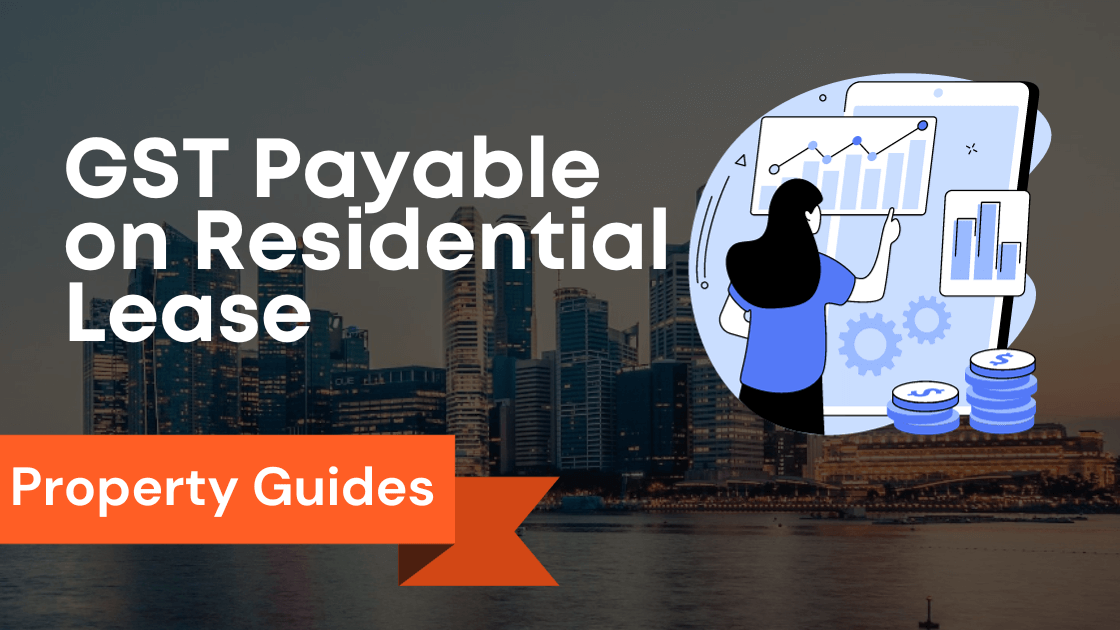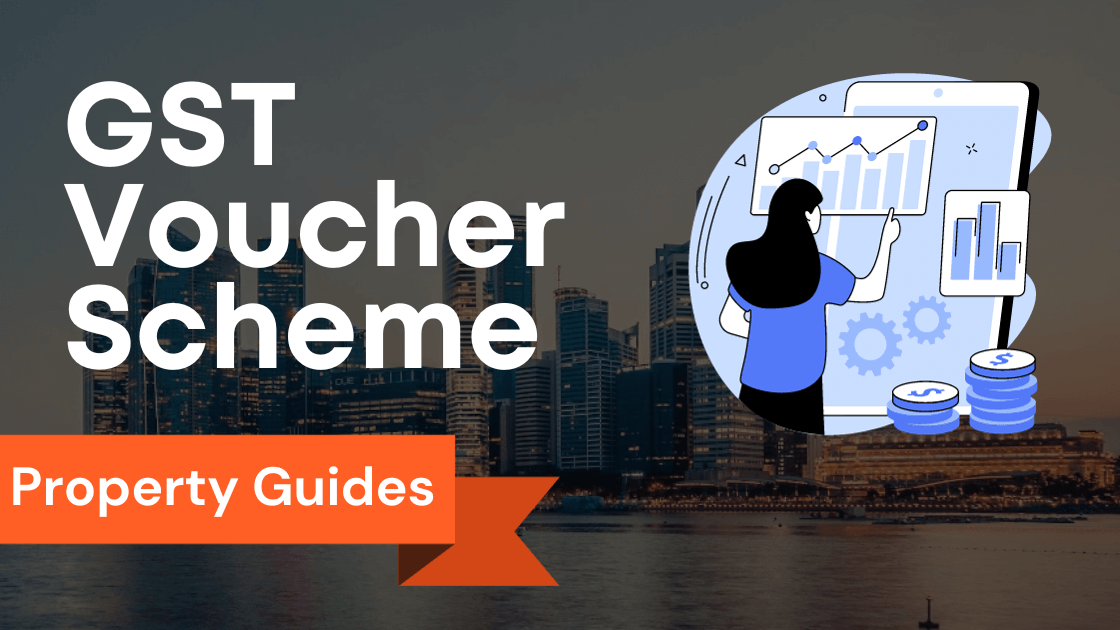GST on Sales of Commercial or Industrial Properties in Singapore

What is GST?
GST on Sales of Commercial or Industrial Properties, or Goods and Services Tax, is a consumption tax levied on the supply of goods and services in Singapore.
It is currently set at 7% and applies to a broad range of products and services.
In the context of property, GST is relevant when it comes to the sale of commercial or industrial properties.
What are non-residential properties?
Non-residential properties refer to properties that are not used for residential purposes.
This category includes commercial properties such as offices, retail spaces, and hotels, as well as industrial properties such as warehouses and factories.
Non-residential properties are subject to different regulations and tax treatment compared to residential properties.
When is GST payable on the sale of a non-residential property?
GST is payable on the sale of a non-residential property when the property is considered to be a taxable supply.
This means that the property is used for business purposes and the seller is GST-registered.
The GST is calculated based on the selling price of the property.
It’s important to note that if the seller is not GST-registered, GST is not applicable to the sale.
Additionally, certain transactions may be exempt from GST, such as the sale of a going concern or the sale of an entire building where the property is used for residential purposes.
It’s advisable to consult with a tax professional or seek guidance from the Inland Revenue Authority of Singapore (IRAS) to ensure compliance with GST regulations and understand any potential tax implications.
Key Takeaways
- GST Overview: GST is a 7% consumption tax in Singapore, applicable to various goods and services, including non-residential properties like commercial and industrial properties.
- Non-Residential Properties: Non-residential properties include commercial spaces (offices, retail) and industrial spaces (warehouses, factories) and are subject to different regulations compared to residential properties.
- When GST Applies: GST is payable when a non-residential property is used for business purposes and the seller is GST-registered. It’s not applicable if the seller isn’t GST-registered or in specific exempt transactions.
- GST vs. Property Tax: GST is a value-added tax, while property tax is an annual tax based on the property’s annual value. Both apply to commercial and industrial properties with differences in rates and obligations.
- GST Registration: Commercial property owners must register for GST if annual taxable turnover exceeds S$1 million. Voluntary registration is also an option for benefits like credibility and attracting tenants.
- Claiming GST Refunds: Eligible businesses can claim GST refunds on expenses related to commercial properties. Proper records and documentation are crucial for successful claims.
- Recent GST Changes: Recent changes introduced a reverse charge mechanism for commercial property transactions, shifting the responsibility for paying GST to the buyer.
- Common GST Mistakes: Mistakes to avoid include failing to register for GST when required and miscalculating GST payable on property transactions.
- Getting Help with GST: Seek assistance from real estate agencies specializing in commercial properties, tax professionals, or the Inland Revenue Authority of Singapore (IRAS) for GST-related matters.
GST and Property Tax in Singapore

How does GST and property tax differ?
When it comes to commercial or industrial properties in Singapore, both Goods and Services Tax (GST) and property tax play a role in determining the tax obligations.
However, there are some key differences between the two.
GST is a value-added tax that is levied on the supply of goods and services.
Some commercial or industrial properties are subject to GST, while others are exempt.
Generally, the sale, rental, or lease of commercial or industrial properties are exempt from GST.
However, if the property is used for taxable activities such as retail or office space, GST will apply.
On the other hand, property tax is an annual tax imposed on property owners in Singapore.
It is levied based on the annual value of the property, which is determined by the government.
Both commercial and industrial properties are liable for property tax, with rates varying depending on the specific property type and location.
Who is liable to pay GST and property tax on commercial or industrial properties?
In the case of GST, only businesses that are GST registered need to charge and collect GST on the supply of taxable goods and services.
Property owners who use their commercial or industrial properties for non-taxable activities are not required to charge GST.
It is important to note that renting out commercial or industrial properties for residential purposes is considered a non-taxable activity.
For property tax, the responsibility lies with the property owner.
They are required to pay property tax based on the annual value of the property.
This applies to both commercial and industrial properties in Singapore.
How to compute GST and property tax on commercial or industrial properties?
To compute GST on commercial or industrial properties, the key factors to consider are the GST rate (currently 7% in Singapore), the net rental or rental income from taxable activities, and any GST paid on expenses related to the property.
The net rental or rental income will be subject to GST at the applicable rate.
As for property tax, it is calculated based on the annual value of the property, which is determined by the government.
The property tax rate for commercial and industrial properties is higher compared to residential properties.
Property owners can refer to the Inland Revenue Authority of Singapore (IRAS) website or consult a tax professional to determine the exact amount of property tax payable.
GST Registration for Commercial or Industrial Property Owners

When is GST registration required for commercial or industrial property owners?
If you are a commercial or industrial property owner in Singapore, you may be wondering whether you need to register for GST.
The general rule is that registration for GST is required when your annual taxable turnover exceeds S$1 million.
However, even if your turnover is below this threshold, you may choose to voluntarily register for GST.
Voluntary registration can be beneficial if you want to claim input tax on your business expenses or if you foresee your turnover increasing in the future.
What are the benefits of GST registration for commercial or industrial property owners?
There are several benefits of GST registration for commercial or industrial property owners.
Firstly, being a GST registered company adds credibility and professionalism to your business.
It shows that you are a legitimate business entity.
Secondly, when selling or leasing your property, being GST registered may attract more buyers or tenants.
Some businesses prefer to deal with GST registered companies as they can claim the GST incurred on their rental expenses.
How to register for GST in Singapore?
To register for GST in Singapore, you need to fulfill certain criteria and follow the registration process.
You can register online through the Inland Revenue Authority of Singapore (IRAS) website.
Once registered, you will need to charge GST on your taxable supplies and file GST returns regularly.
You can also claim input tax on your business expenses related to your GST registered activities.
In conclusion, GST registration for commercial or industrial property owners in Singapore is required if your annual taxable turnover exceeds S$1 million, but you may choose to voluntarily register if you see benefits in doing so.
It is advisable to consult with a tax professional or the IRAS for guidance on your specific situation.
Claiming GST Refunds on Commercial or Industrial Properties

Who is eligible to claim GST refunds on commercial or industrial properties?
If you are involved in commercial property transactions in Singapore, you may be eligible to claim GST refunds.
The ability to claim GST depends on several factors, such as whether you are registered for GST and whether the property is used for taxable business purposes.
It is recommended to consult with a tax professional to determine your eligibility and to ensure compliance with the regulations.
What types of GST are refundable?
In general, the GST portion of expenses related to commercial or industrial properties can be claimed as input tax credit.
This includes expenses such as renovation costs, maintenance fees, and property taxes.
However, it is important to note that residential properties are not eligible for GST refunds.
How to claim GST refunds on commercial or industrial properties?
To claim GST refunds on commercial or industrial properties, you must have collected GST on the rental income.
You can then offset this against the GST paid on the expenses related to the property.
It is important to maintain proper records and documentation to support your claim.
This includes invoices, receipts, and rental agreements.
It is recommended to seek professional advice or consult the Inland Revenue Authority of Singapore (IRAS) for specific guidance on claiming GST refunds.
In conclusion, claiming GST refunds on commercial or industrial properties in Singapore can provide tax benefits by allowing businesses to recover the GST portion of their expenses.
It is important to understand the eligibility criteria and follow the proper procedures for claiming these refunds.
Working with a tax professional can ensure compliance and maximize the benefits for your business.
GST Rules and Regulations for Commercial or Industrial Properties in Singapore

Recent changes to GST rules and regulations for commercial or industrial properties
In recent years, there have been some important changes to the Goods and Services Tax (GST) rules and regulations for commercial or industrial properties in Singapore.
These changes aim to simplify and streamline the GST process for businesses involved in property transactions.
One significant change is the introduction of the reverse charge mechanism for commercial property transactions.
Under this mechanism, the responsibility for accounting for and paying GST on the sale of commercial properties is shifted from the seller to the buyer who is a GST-registered company.
This change helps to prevent tax evasion and ensures that GST is properly accounted for.
Common GST mistakes to avoid when buying or selling a commercial or industrial property
When buying or selling a commercial or industrial property in Singapore, it is important to be aware of common GST mistakes that could lead to unnecessary penalties or complications.
Some of these mistakes include:
- Failing to register for GST when required: If you are a GST-registered company, you must charge GST on the sale of a commercial or industrial property, and failing to do so can result in penalties.
- Not properly calculating the GST payable: It is crucial to accurately calculate the GST payable on a property transaction to avoid overpaying or underpaying GST.
Where to get help with GST matters related to commercial or industrial properties?
If you need assistance with GST matters related to commercial or industrial properties, there are resources available to help you navigate the complexities of GST rules and regulations.
You can consult a real estate agency that specializes in commercial property transactions, as they will have the knowledge and expertise to guide you through the process.
Additionally, you can seek advice from a tax professional or contact the Inland Revenue Authority of Singapore (IRAS) for further information on GST rules and refunds.
Remember, staying informed and ensuring compliance with GST rules and regulations is essential when buying or selling a commercial or industrial property in Singapore.
Conclusion
In conclusion, understanding the implications of GST on sales of commercial or industrial properties in Singapore is crucial for anyone considering buying or investing in commercial real estate.
The voluntary GST registration offers a host of benefits, such as the ability to claim input tax for property-related expenses and the flexibility to hold commercial properties under a purpose vehicle in a company’s name.
It is also important to note that, unlike residential properties, commercial properties are subject to GST regardless of whether the seller is GST registered or not.
For individuals or companies planning to buy commercial property, it is advisable to incorporate a private limited company to enjoy the full benefits of GST registration.
This can help minimize personal tax liability and provide opportunities for capital gains tax relief.
Throughout the process of purchasing a commercial property, it is essential to keep accurate records of tax invoices and ensure compliance with the requirements set forth by the Inland Revenue Authority of Singapore (IRAS).
This includes timely filing of GST returns and proper documentation of rental collected.
Moreover, mixed properties that consist of both residential and non-residential portions may require careful analysis to determine the applicable GST treatment.
The Companies Act provides guidelines on the incorporation and operation of companies in Singapore, while the IRAS regulates GST compliance.
It is advisable to engage professional advice to navigate through the complexities of GST and ensure compliance with relevant laws and regulations.
Overall, understanding and effectively managing the implications of GST on commercial or industrial property sales in Singapore can help buyers make informed decisions, optimize tax benefits, and navigate the legal landscape of real estate investment in the country.
Whether you are a first-time buyer or a seasoned investor, staying informed and seeking professional advice will not only ensure compliance but also maximize the advantages that GST provides in the commercial property sector in Singapore.
In conclusion, the Goods and Services Tax (GST) on the sales of commercial or industrial properties in Singapore has several key considerations.
Firstly, payments such as rent for guest houses, halls of residences, and other business activities are subject to GST if the property is not used solely for residential purposes.
The GST is generally imposed at a flat rate on the selling price or market value of the property.
Secondly, the holding period and the purchase price of the property affect the GST liability.
For completed non-residential properties, the GST on the sale will be based on the purchase price.
However, for under-construction commercial properties, the GST is calculated based on the progressive payments made.
Furthermore, the sale of land and any additional costs related to the sale of the property may also attract GST.
It is important for potential buyers and sellers to consider these additional costs when determining the final sale price.
Additionally, there are exemptions and special conditions for certain types of properties.
For example, residential properties, charitable organizations, and industrial sites are generally exempt from GST.
On the other hand, medical facilities and raw materials used for construction may be subject to GST.
It is crucial for businesses and individuals involved in the buying and selling of properties to seek professional advice, such as financial and legal advice, to ensure compliance with GST regulations.
Moreover, tax planning for investment properties and understanding the tax deductions available can help minimize the overall tax burden.
Overall, understanding the applicable GST rates, input tax recovery rules, and remission conditions is essential in determining the tax implications on the sale of commercial or industrial properties in Singapore.
Seeking advice from accounting firms or experts can assist in navigating these complex regulations and ensuring compliance.
Frequently Asked Questions
What is GST on the sales of commercial or industrial properties?
GST on the sales of commercial or industrial properties refers to the application of the Goods and Services Tax on the purchase and sale transactions of non-residential properties.
Do I need to be GST registered to buy a commercial property?
No, you do not need to be GST registered to buy a commercial property.
However, if you are GST registered, you may be eligible to claim back the GST amount incurred on the purchase.
Is GST applicable on the rental income from commercial properties?
No, GST is not applicable to the rental income from commercial properties.
Rental income from non-residential properties is exempted from GST.
How does GST impact the sale of commercial properties?
GST is applicable on the sale of commercial properties unless the property is still under construction.
The buyer will be responsible for paying the GST on the sale, which can be claimed back if they are GST registered.
What type of property is subject to GST?
Non-residential properties such as commercial or industrial properties are subject to GST.
Residential properties are exempted from GST.
Can a holding company be GST registered?
Yes, a holding company can choose to voluntarily register for GST even if it does not have any taxable supplies.
This allows the holding company to claim back the GST incurred on its input expenses.
How can I claim back the GST on my commercial property purchase?
If you are GST registered, you can claim back the GST amount incurred on the purchase of a commercial property in your GST returns.
Is there a stamp duty on the sale and lease of residential properties?
No, there is no stamp duty on the sale and lease of residential properties.
Only commercial properties are subject to stamp duty.
Can I claim a tax rebate if GST is incurred on the purchase of a commercial property?
No, you cannot claim a tax rebate for the GST incurred on the purchase of a commercial property.
However, if you are GST registered, you can claim back the GST amount in your GST returns.
What is a special purpose vehicle in the context of commercial property investment?
A special purpose vehicle refers to a separate legal entity established for the sole purpose of a specific commercial property investment or project.
It is commonly used to provide a layer of liability protection for the investor or to facilitate financing arrangements.












